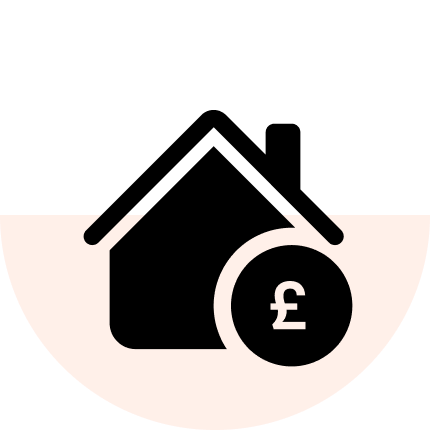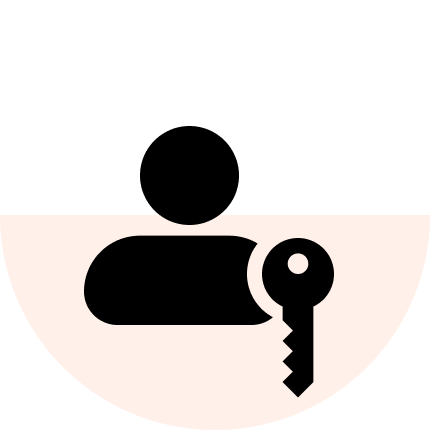
What is a Debt Management Plan?
A Debt Management Plan (DMP) is an informal agreement between you and your creditors to pay back your debts at a rate you can afford.
Review your income and expenditure to work out what you can realistically afford to repay each month. This reduced monthly repayment amount will be proposed to each of your creditors and if accepted, your debts will be repaid at this rate over an extended period.

Is a Debt Management Plan right for me?
If you’re struggling to make your monthly payments but have a stable enough income to make consistent, smaller repayments over an extended period, then a DMP could be right for you.
When should I consider a Debt Management Plan?
Speak to a regulated debt advice company about a DMP if you are:
- Worried about your debt
- Finding it difficult to pay your household bills
- Reliant on your overdraft or credit card
- Regularly missing repayments or getting into arrears
Are you eligible for a Debt Management Plan?
You will need to be a UK resident, and you’ll also need:
- At least £100 in disposable income each month
- At least 2 unsecured debts
- At least £2,000 in unsecured debt

Debt Management Plan pros & cons
DMP Pros
- Reduced monthly repayments
- Creditors can freeze interest and charges on your debts
- DMPs aren’t recorded on a public register
- You should receive less contact from your creditors
DMP Cons
- You’re still liable for your full debt
- Creditors can still take legal action
- There are no guarantees that the creditors will accept offers
- Your creditors aren’t obligated to cease contact
- Can affect credit file
How to apply for a Debt Management Plan
If you want to apply for a DMP or find out what other solutions could be available, get in touch and one of our friendly advisors will:

Review your financial situation, including your current debts, and provide you expert advice on what solutions are available.

If you choose a solution managed by MoneyPlus Advice, we’ll send you your paperwork and guide you through each step of the process.

We’ll contact your creditors on your behalf to negotiate repayment amounts and freeze interest and charges on your debt.
What debts does a Debt Management Plan cover?

Buy now, pay later

Overdrafts

Credit cards

Store cards

Payday loans

Bank loans
What debts aren’t covered in a Debt Management Plan?
Not all debts can be included in a Debt Management Plan, some types of debt that won’t be included are:
- Council tax
- Income tax
- Court fines
- National insurance
- TV license
- Utility bills
- Priority bill arrears

Living with a Debt Management Plan
Debt Management Plans get to work almost immediately helping you manage your debt, meaning that once you have considered your budget, you can begin making your new manageable payments right away.
It’s worth noting that creditors can still contact you and may continue to request payments. If your plan is managed by MoneyPlus Advice, you can refer any creditor contact to us, and you won’t need to reply. If payments are not made to creditors (in whole or in part) you can still fall into arrears or have increasing arrears.
It’s also important to remember that a Debt Management Plan will impact your credit score for the time the plan is in place, and 6 years after that.

See some of our real-life DMP success stories

Melanie was £22,000 in debt
She had multiple debts including credit cards, loans, catalogues & buy-now-pay-later debts.
£739
Before entering a DMP, her monthly payments were
£133
As a MoneyPlus Advice customer, she now pays
🎉 That’s a payment reduction of £606!
Monthly payments are based on your individual circumstances after a full review of income and expenditure. In a DMP, reducing your payments will extend the amount of time to pay and monthly Management Fees will be payable.
How a Debt Management Plan affects mortgages & renting

Mortgage
Having a DMP in place can make it difficult to get a mortgage. Making reduced payments towards your debts will show on your credit file, and this may be used against you in a mortgage application.

Remortgaging
Similarly, it can be difficult to remortgage your existing home on a DMP, though there are options depending on the length of your current plan. If your mortgage plan expires, your current lender will likely offer their standard variable rate. While not the best deal, it will allow you to continue making repayments.

Renting
If you keep your rent payments up-to-date and pay off any rental debts that you may have, then a DMP shouldn’t affect your current tenancy.
Can a Debt Management Plan protect me against bailiffs?
While a Debt Management Plan cannot guarantee that bailiffs will no longer come to your door, having an agreed repayment plan in place could help keep your assets safe.
As bailiffs are typically a last resort for lenders, setting up a Debt Management Plan is usually an indication that you plan to repay your debts, and should reduce the risk of legal force.

“It’s made a big difference to me and how I live.“
— Helen, Aberdeenshire *
Read Helen’s story…
How long do Debt Management Plans last?
This depends on your monthly repayment amount, interest and charges (if applicable), and your personal circumstances. The actual amount of time your Plan will last could change if your personal circumstances change.
For example, if your income increases, you could increase your payments and reduce the length of your Plan. However, if something changes and you need to reduce your payments, this will extend the length of the Plan.
Can you pay off your Debt Management Plan early?
DMPs are quite flexible, so you may find that you’re able to pay it off earlier by increasing your monthly payments or paying a lump sum.
If your personal circumstances change and you find yourself coming into money, our internal Settlements Team can help you to get an early settlement figure, which could see you settle your debt for less.
What’s the difference between a DMP and an IVA?

A Debt Management Plan (DMP) and an Individual Voluntary Arrangement (IVA) are designed for those who may be struggling to cope with their debts. Although both solutions are part of an agreed plan to make lower, affordable monthly payments to your creditors, there are some differences to be aware of.
The biggest difference is that an IVA is legally binding, while a DMP is not. Once your creditors have signed up to the terms of an IVA, they can’t take legal action against you, like petitioning to make you bankrupt or taking other court action. They are also prevented from being able to contact you directly.
If they want to communicate, they have to do so through the licensed Insolvency Practitioner (IP) who has been assigned to deal with your individual case. Unlike DMPs, IVAs also give you the opportunity to write off some of your debt.
Meanwhile, DMPs aren’t legally binding. This means that creditors are still able to take action against you if you don’t stick to the agreement of your monthly repayment plan. Creditors are free to contact you, but if you’re using an FCA-regulated debt management company such as MoneyPlus Advice, we are here to help if you receive any creditor contact.
Can you take out credit while on a Debt Management Plan?
Taking out further credit while on a DMP would impact your monthly expenditure, and could make repayments unaffordable.
When using our DMP service, our expert Advisors will help you to set up a realistic monthly budget, which will account for all regular, day-to-day costs that are likely to pop up. We’ll make sure you are left with enough money to cover all of your daily expenses, reducing the need to borrow money.
If you do need to take out a new credit agreement, the lender will run a credit check. Due to the impact on your credit file of making reduced payments, you may be charged a higher interest rate for the credit you take out, or refused credit altogether.
Can you get car finance on a Debt Management Plan?
Whilst there are some car finance companies that accept those on DMPs, you may find that you’re seen as a higher risk by most.
Why choose MoneyPlus Advice?
14,000
Based on our numbers up to May 11th, we’re expecting to give debt advice to over 14,000 people this year!
1 million +
For our most vulnerable customers, we successfully fought for £1,042,722 of unmanageable debt to be written off.
£240
We save our Debt Management Plan customers on average £240 each month in Interest & Charges.
How it works
At MoneyPlus, we aim to make life as easy as possible. That’s why we take care of as much of the work for you as we possibly can. If you qualify for our DMP services, here’s what will happen next:

Talk to us.
Talk to us in complete confidence about your financial situation and the debts you are struggling with.

Find a solution.
Based on the information you give us, we will create a plan that will help you get out of debt, whether that includes our services or not.

Choose your plan.
We will get in touch with your creditors on your behalf to notify them that you are with MoneyPlus. Alternatively, we will ensure that you know who can help.
Other debt solutions that can help
There are a number of debt solutions available and you can find more information on all of the below solutions on our website.
Individual Voluntary Arrangement (IVA)
An Individual Voluntary Arrangement (IVA) is a form of insolvency that allows you to write off up to 80% of your debt as an alternative to bankruptcy. It’s a formal solution that can reduce your monthly repayments.
Debt Relief Order (DRO)
A DRO may be a suitable solution for those with debts of less than £30,000 (£20,000 in Northern Ireland) and less than £75 a month in disposable income.
Protected Trust Deed
Designed for residents of Scotland, a Protected Trust Deed is a type of formal debt solution that combines debts into one single monthly payment.
Debt Consolidation Loan
Rather than make multiple payments to your creditors, a Debt Consolidation Loan allows you to pay off your unsecured debts by making one monthly payment.

Are you ready to find your debt solution?
- Affordable monthly payment
- Stop creditor contact
- Stop interest and charges


